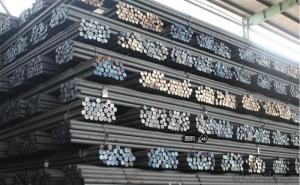Grade SCM440 Forged Alloy Steel Round Bar
- Loading Port:
- Shanghai
- Payment Terms:
- TT OR LC
- Min Order Qty:
- 3 m.t.
- Supply Capability:
- 100000 m.t./month
OKorder Service Pledge
OKorder Financial Service
You Might Also Like
Item specifice
Grade SCM440 Forged Alloy Steel Round Bar
Details Information of Grade SCM440 Forged Alloy Steel Round Bar
| Name | SCM440 Carbon Steel Round Bar |
| Shape | Round Bar/Square Bar/Flat Bar/Plate/Wire |
| Standard | GB/ASTM/SAE/AISI/DIN/JIS/EN/BS |
| Surface Treatment: | Black/Peeling/Polished/Machined |
| Delivery Condition: | Hot Rolled or Forged/Peeled or Black Surface |
| Test | SGS/UT 100% Elements Testing |
| Certificate: | ISO/Mill Certificate |
| Service: | 24 hours online service / |
| more than 20 years trading and manufacture | |
| Quality Assurance: | the third party inspection, such as SGS, BV, TUV…etc. is acceptable |
| Packaging Details: | Seaworthy Packaging or as per customer's packing instruction |
| Carbon structure round bar | Q195 Q235A Q235B 10# 20#-55# S45CB |
| Low alloy high strength round bar | Q345A/Q345C/Q345D Q345B Q345E |
| Alloy structure round bar | SAE51B20 20Cr 40Cr 40CrV 20CrMo/30CrMo/35CrMo/42CrMo 20CrMoA/30CrMoA/35CrMoA/42CrMoA/42Cr ML20CrMo/ML30CrMo/ML35CrMo/ML42CrMo B7/SCM435-440 20MnTiB 20CrMnMo 20CrMoH 42CrMoH 40MnB/40MnBH 30Mn2-40Mn2 27SiMn 50CrVA 30CrMnTi |
| Pinion steel | 20CrMnTi 20CrMnTiH 20CrMnTiHCS/20CrMnTiHLD Q20CrMnTi-1/Q20CrMnTi-2 |
| Sucker rod | 20-35CrMoA |
| Free-cutting steel | GT1215S |
| Spring steel | 60Si2MnA 65Mn |
| Ball bearing steel | GCr15 |
Chemical Composition of Grade SCM440 Forged Alloy Steel Round Bar
| C | Si | Mn | P | S | Cr | Ni | Cu |
| 0.17-0.24 | 0.17-0.37 | 0.35-0.65 | ≤0.035 | ≤0.035 | ≤0.25 | ≤0.25 | ≤0.25 |
| Tensile strength (σb/MPa) | Yield strength (σb/MPa) | Elongation (δ5/%) |
| ≥410(42) | ≥245(25) | ≥25 |
Company Introduction of Grade SCM440 Forged Alloy Steel Round Bar
CNBM International Corporation is the most import and export platform of CNBM group(China National Building Material Group Corporation) ,which is a state-owned enterprise, ranked in 270th of Fortune Global 500 in 2015.
With its advantages, CNBM International are mainly concentrate on Cement, Glass, Iron and Steel, Ceramics industries and devotes herself for supplying high quality series of refractories as well as technical consultancies and logistics solution.
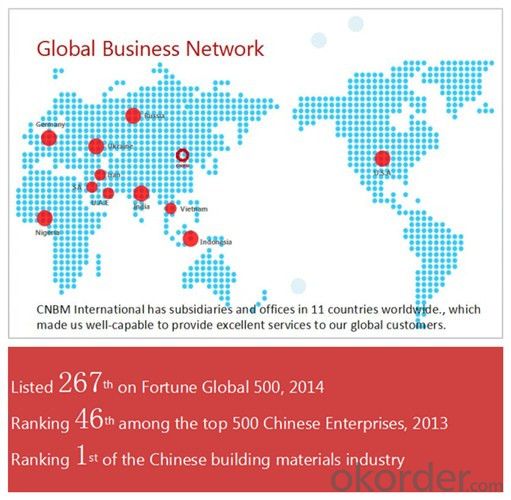
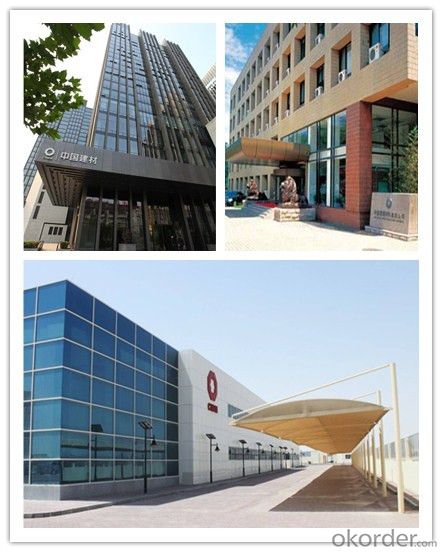
Certificates of Grade SCM440 Forged Alloy Steel Round Bar
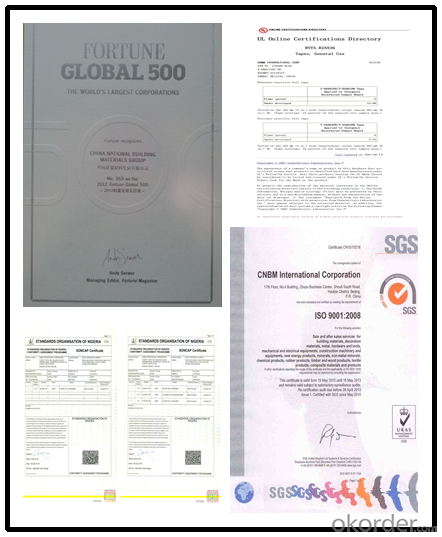
Packaging & Delivery of Grade SCM440 Forged Alloy Steel Round Bar
Packaging Detail | Sea worthy packing /as per customer's packing instruction |
Delivery Detail | 15 ~ 40 days after receiving the deposit |
Products show of Grade SCM440 Forged Alloy Steel Round Bar
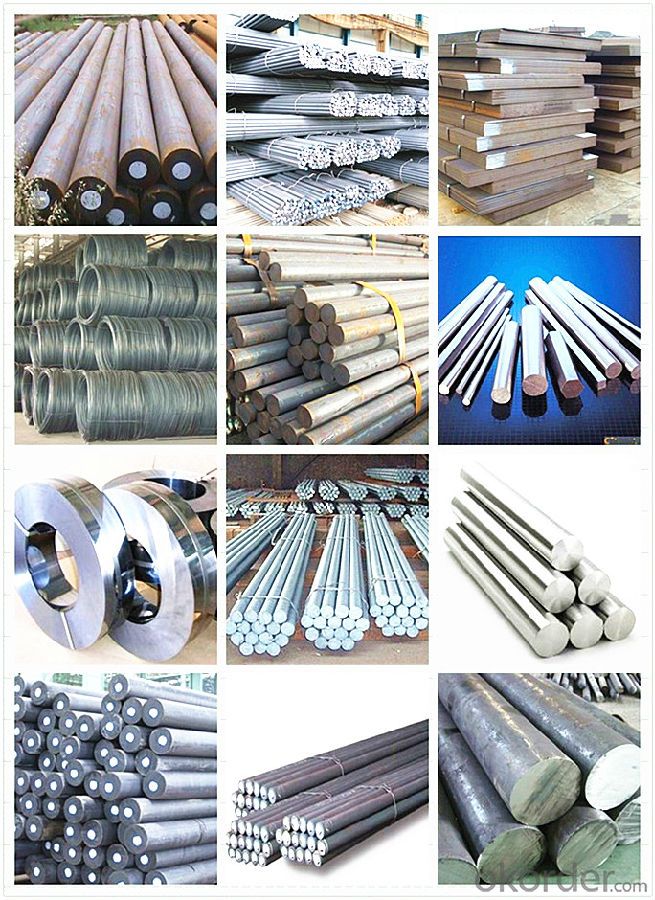
FAQ
Are you a trading company or manufacturer? | Manufacturer |
What’s the MOQ? | 3 metric ton |
What’s your delivery time? | 15-35 days after downpayment received |
Do you Accept OEM service? | Yes |
what’s your delivery terms? | FOB/CFR/CIF |
What's the Payment Terms? | 30% as deposit,70% before shipment by T/T |
Western Union acceptable for small amount. | |
L/C acceptable for large amount. | |
Scrow ,Paybal,Alipay are also ok | |
Why choose us? | Chose happens because of quality, then price, We can give you both. Additionally, we can also offer professional products inquiry, products knowledge train (for agents), smooth goods delivery, excellent customer solution proposals. |
What's your available port of Shipment? | Main Port, China |
What’s your featured services? | Our service formula: good quality+ good price+ good service=customer's trust
|
Where are your Market? | Covering more than 160 countries in the world |
- Q:How is high-speed stainless steel used in the production of machining tools?
- High-speed stainless steel is commonly used in the production of machining tools due to its excellent heat resistance, hardness, and corrosion resistance. This type of stainless steel can withstand high temperatures generated during machining operations without losing its strength. It helps in enhancing the tool's cutting performance, improving its lifespan, and reducing wear and tear. Additionally, high-speed stainless steel is also preferred for its ability to resist the corrosive effects of various chemicals and environments, making it suitable for a wide range of machining applications.
- Q:What are the different magnetic grades of special steel?
- There are several different magnetic grades of special steel that are commonly used in various applications. Some of the most common magnetic grades include: 1. Soft Magnetic Materials: These grades of special steel are designed to have high magnetic permeability and low coercivity. They are used in applications where a high magnetic induction is required, such as in transformers, electric motors, and magnetic cores for electrical devices. 2. Martensitic Stainless Steels: These grades of special steel have a high magnetic permeability and are magnetic in their hardened state. They are commonly used in applications such as cutlery, tools, and certain automotive components. 3. Ferritic Stainless Steels: These grades of special steel have a lower magnetic permeability compared to martensitic stainless steels, but they are still magnetic. They are commonly used in applications such as automotive exhaust systems, decorative trim, and appliances. 4. Duplex Stainless Steels: These grades of special steel possess a mixed microstructure of austenite and ferrite, resulting in a magnetic response. They are known for their high corrosion resistance and are used in applications where both strength and corrosion resistance are required, such as in chemical processing equipment and offshore oil and gas platforms. 5. Austenitic Stainless Steels: These grades of special steel are non-magnetic in their annealed state. However, they can exhibit slight magnetism when cold worked or if they contain certain alloying elements. Austenitic stainless steels are widely used in various applications, such as in food processing equipment, architectural structures, and medical devices. It's important to note that the presence or absence of magnetism in special steel grades can vary depending on factors such as composition, heat treatment, and processing. Therefore, it is crucial to consider the specific requirements of a particular application when selecting the appropriate magnetic grade of special steel.
- Q:What are the different cutting grades of special steel?
- There are several cutting grades of special steel, including high-speed steel (HSS), tool steel, stainless steel, and alloy steel. Each grade has specific properties and characteristics that make it suitable for different cutting applications.
- Q:How does special steel perform in extreme heat conditions?
- Special steel is specifically designed to perform exceptionally well in extreme heat conditions. It exhibits high resistance to thermal fatigue, oxidation, and creep, making it suitable for applications that involve exposure to intense heat. The unique composition and processing techniques used in the production of special steel allow it to retain its mechanical properties and structural integrity even at elevated temperatures. One of the key characteristics of special steel is its high melting point, which prevents it from melting or deforming easily under extreme heat. This property is crucial in industries such as aerospace, power generation, and automotive, where components are subjected to intense heat and need to maintain their shape and functionality. Furthermore, special steel possesses excellent heat resistance, meaning it can withstand and dissipate heat effectively without losing its strength or becoming brittle. This property ensures that the steel remains durable and reliable even when exposed to prolonged high-temperature environments. Special steel also exhibits outstanding oxidation resistance, forming a protective layer on its surface that prevents it from corroding or degrading when exposed to oxygen at high temperatures. This resistance to oxidation allows special steel to maintain its performance and structural integrity over extended periods, making it highly suitable for applications in extreme heat conditions. In summary, special steel performs exceptionally well in extreme heat conditions due to its high melting point, heat resistance, and oxidation resistance. Its ability to withstand thermal fatigue, oxidation, and creep makes it a reliable and durable choice for applications that require superior performance in high-temperature environments.
- Q:What are the different surface finishing techniques for special steel parts?
- There are several surface finishing techniques for special steel parts, including electroplating, powder coating, painting, polishing, and passivation. Each technique offers unique benefits and can be chosen based on the desired appearance, corrosion resistance, durability, and functionality of the steel parts.
- Q:What are the different surface finishing methods used for special steel?
- There are several surface finishing methods used for special steel, each serving a specific purpose and achieving different results. Some of the common surface finishing methods for special steel include: 1. Grinding: Grinding is the process of using abrasive materials to remove excess material from the surface of the steel. It is typically used to achieve a smooth and polished finish, as well as to remove any imperfections or roughness. 2. Polishing: Polishing involves using polishing compounds and abrasive materials to create a smooth and shiny surface on the steel. This method is often used to enhance the aesthetic appeal of the steel and improve its corrosion resistance. 3. Shot blasting: Shot blasting is a technique that involves propelling small metal or mineral particles at high speeds onto the surface of the steel. This process helps to remove any contaminants, scale, or rust from the surface, resulting in a clean and uniform finish. 4. Electroplating: Electroplating is a process where a thin layer of metal is deposited onto the surface of the steel through an electrochemical reaction. This method is commonly used to enhance the appearance of the steel, improve its corrosion resistance, and provide a decorative or protective coating. 5. Passivation: Passivation is a chemical process that involves treating the surface of the steel with an acid solution to remove any impurities and create a passive, corrosion-resistant layer. This method is often used to improve the corrosion resistance of stainless steel and other alloys. 6. Coating: Coating is the process of applying a protective layer or coating onto the surface of the steel. This can include paints, lacquers, enamels, or other types of protective coatings that help to prevent corrosion, improve durability, or provide a specific aesthetic finish. It is important to note that the choice of surface finishing method for special steel depends on the desired outcome, such as aesthetics, corrosion resistance, or functionality. Additionally, the specific characteristics of the steel, such as its composition, hardness, and intended application, also play a significant role in determining the most suitable surface finishing method.
- Q:How is special steel used in the textile supply chain?
- Special steel is used in the textile supply chain for various applications such as manufacturing textile machinery, equipment, and tools. The high strength and durability of special steel make it ideal for creating components that can withstand the demanding conditions of textile production, including high temperatures, corrosion, and heavy loads. It is commonly used in the production of spinning machines, looms, needles, and other crucial parts, ensuring efficient and reliable textile manufacturing processes.
- Q:How does special steel perform in high-stress environments?
- Special steel performs exceptionally well in high-stress environments due to its unique properties. Its enhanced strength, durability, and resistance to corrosion make it highly reliable and capable of withstanding extreme conditions. This allows it to maintain its structural integrity and prevent deformation or failure, making it ideal for use in demanding industries like aerospace, oil and gas, and automotive.
- Q:What are the properties of magnetic stainless steel?
- Magnetic stainless steel possesses the unique property of being attracted to magnets due to its high iron content. It is also corrosion resistant, making it suitable for various applications in industries such as construction, automotive, and kitchenware. Additionally, it retains its strength and durability even in extreme temperatures, making it a versatile material for different environments.
- Q:How does special steel perform in terms of fatigue resistance?
- Special steel performs exceptionally well in terms of fatigue resistance. Its unique composition and heat treatment processes enhance its ability to withstand repeated cyclic loading, preventing the occurrence of fatigue failure. This makes special steel an ideal choice for applications where durability and longevity are crucial, such as in aerospace, automotive, and heavy machinery industries.
1. Manufacturer Overview |
|
|---|---|
| Location | |
| Year Established | |
| Annual Output Value | |
| Main Markets | |
| Company Certifications | |
2. Manufacturer Certificates |
|
|---|---|
| a) Certification Name | |
| Range | |
| Reference | |
| Validity Period | |
3. Manufacturer Capability |
|
|---|---|
| a)Trade Capacity | |
| Nearest Port | |
| Export Percentage | |
| No.of Employees in Trade Department | |
| Language Spoken: | |
| b)Factory Information | |
| Factory Size: | |
| No. of Production Lines | |
| Contract Manufacturing | |
| Product Price Range | |
Send your message to us
Grade SCM440 Forged Alloy Steel Round Bar
- Loading Port:
- Shanghai
- Payment Terms:
- TT OR LC
- Min Order Qty:
- 3 m.t.
- Supply Capability:
- 100000 m.t./month
OKorder Service Pledge
OKorder Financial Service
Similar products
New products
Hot products
Related keywords
